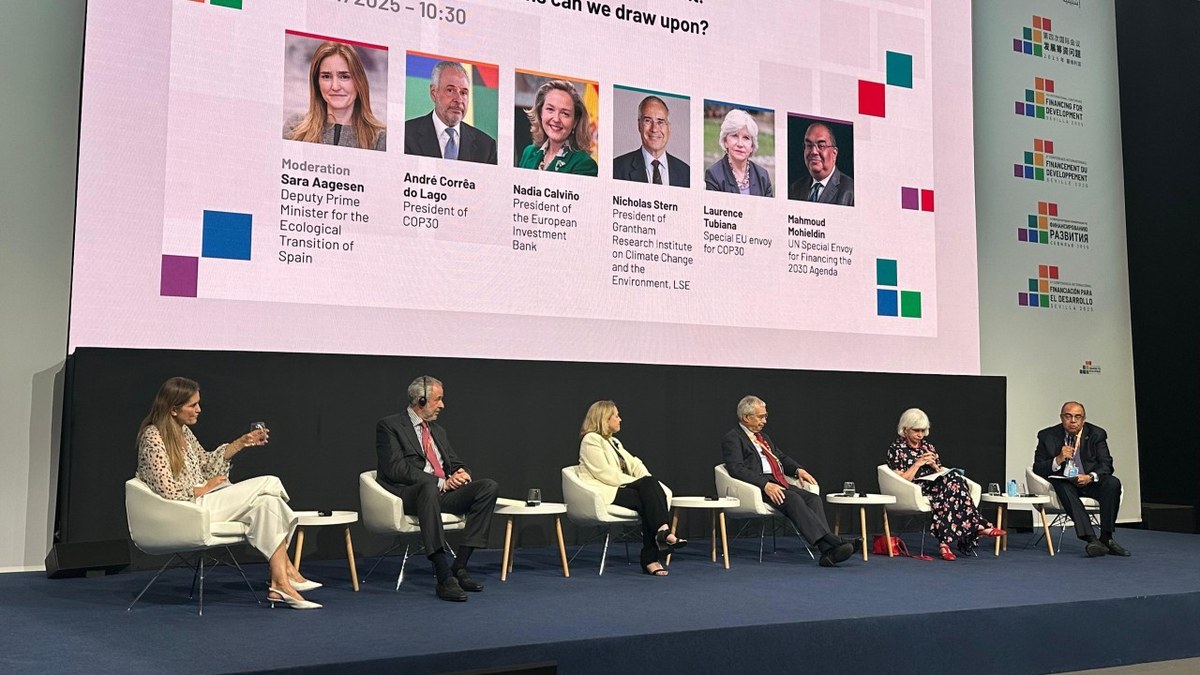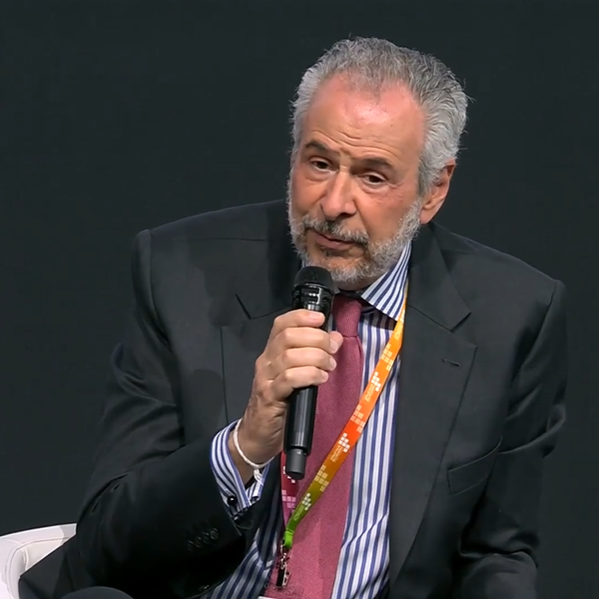Seville, Rio, and Belém: climate finance as a driver of sustainable development, a debate ahead of the BRICS summit
COP30 President emphasizes the central role of development finance in achieving climate goals

By COP30 Presidency
On Thursday, July 3, the 4th International Conference on Financing for Development concluded in Seville, Spain. The conference highlighted both an opportunity and an alarm to transform the climate emergency into a lever for a new model of sustainable and inclusive economic growth. This announcement comes just days before the BRICS Summit begins in Rio de Janeiro on Sunday, July 6. The high-level debates in both cities aim to gather evidence and solutions for COP30, which will be held in Belém in November.
Ambassador André Corrêa do Lago, the designated president of COP30, participated in the Seville meeting. During the panel discussion, "From Emergency to Opportunity: Climate Finance as a Guarantee for Sustainable Development—What Innovative Solutions Can We Build?", the COP30 President also discussed the importance of redefining the basis of international financing in light of current urgent challenges, including the climate crisis.

In his remarks, the ambassador stressed the importance of financial issues to achieving success at COP30, emphasizing that aligning environmental and economic interests is possible. "Fighting climate change can be good business. It can create jobs and contribute to development," he said. This message must be repeated persistently over the coming months," stated Ambassador Corrêa do Lago.
Attending the COP30 president's panel were Laurence Tubiana, COP30 Special Envoy to the European Union; Sara Aagesen, Spain’s Deputy Prime Minister for Ecological Transition; Nadia Calviño, President of the European Investment Bank; Nicholas Stern, President of the Grantham Institute at LSE; and Mahmoud Mohieldin, UN Special Envoy for Financing the 2030 Agenda.
At the opening of the session, Sara Aagesen reiterated that climate finance "is not charity, but an investment in people, stability, and our collective future."
For Corrêa do Lago, the Seville conference helped shift the political atmosphere around sustainable development and climate agendas, which some sectors still unfairly perceive as threats. “I am very grateful to Spain for creating this moment. Seville helped restore this spirit of cooperation. This is not only good for the world—it directly supports the preparation of COP30,” the Ambassador concluded.
The convergence of agendas and debates between Seville and Belém will resonate at the BRICS Summit, to be held in Rio this Sunday and Monday. Multilateralism, financing, and cooperation in areas such as health and technology are on the BRICS agenda and are also key themes in discussions leading up to COP30 in November.
In addition to participating in the Seville Conference sessions, Ambassador Corrêa do Lago met with leaders worldwide, including former Chilean President Michelle Bachelet. Together, they discussed human rights, especially women’s rights, and the effort against climate change. Gender is one of the cross-cutting priorities of the COP30 presidency.
Day 3 / Special Events: 4th International Conference on Financing for Development FFD4 (Sevilla, Spain)
English Version: Trad. Bárbara Menezes.
Proofreading by Enrique Villamil.

